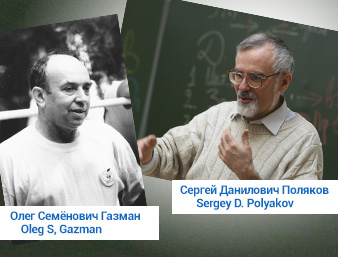
Prerequisites for a pedagogical support concept in the research and practice of Oleg Gazman
Polyakov, Sergey D.
[about]
Oleg Semenovich Gazman (1936-1996) is one of the most prominent Russian researchers and experts in the sphere of the personality-oriented education in the 1980-1990s.
Gazman graduated from Novosibirsk Pedagogical Institute, a well-known Russian school of education, which trained such renowned scholars and researchers as N.P. Anikeeva, E.N. Goryukhina, and S.A. Shmakhov. Oleg Gazman belonged to this group. A significant part of Gazman’s research career was his work on the dissertation supervised by L.I. Novikova. She introduced many new names and trained a great number of gifted and well-known scholars, who made an enormous contribution to the Russian social education theory and practice. As is well-known now, L.I. Novikova headed a research team focusing on the problems of the collective and personality including opportunities of an individual’s development in a group and in conflict situations between an individual and the group.
Later, in the 1990s, Gazman considered the aforementioned problems to be some kind of a source in developing his ideas of an individual ability for freedom, which is understood as a an ability to make an intentional and responsible step away from the imposed beliefs and attitudes, into the zone of the so-called moral choice. Gazman’s primary interests correlated with historical and educational issues, a research of the collective as a subject of social education, and the development of a game theory within the theoretical education boundaries. Gradually, all those ideas helped Gazman develop his own original concept of ‘a pedagogical support’ [1,2]. This concept, developed by Gazman in the 1990s, proved a major theoretical and practical achievement as well as the discussion site in the new (Russian) education reality.




